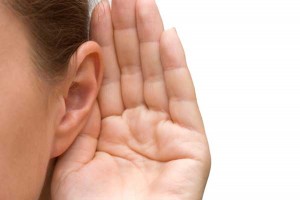 During an interview with a job recruiter, they want to learn about your greatest strengths and also your weaknesses. This information allows them to assess your overall skill set and determine how good of a fit you would be for a position. Here are some tips for answering the classic question, “What is your biggest weakness?”
During an interview with a job recruiter, they want to learn about your greatest strengths and also your weaknesses. This information allows them to assess your overall skill set and determine how good of a fit you would be for a position. Here are some tips for answering the classic question, “What is your biggest weakness?”
Be Honest
Interviewers deal with all types of job candidates and are experienced in spotting insincerity. That’s why it’s important to be upfront and not dance around the subject. Admitting that you have a weakness shows that you’re self-aware and honest, which will be a positive reflection on you. Just make sure that the weakness you describe doesn’t directly inhibit your ability to perform the job you’re applying for.
For instance, if you’re applying for a manufacturing job that demands strong mathematical skills, you shouldn’t say that you’re terrible at math. The bottom line is that you should be honest, but not to the point that’s going to kill your chances of getting hired.
Don’t Be Phony
At the same time, you don’t want to be over the top and give a ridiculous answer. Penelope Trunk, a career coach and author, gives a good example. “Saying something like ‘I pay too much attention to detail’ is actually a terrible answer for someone who is getting hired to do detail work.” An interviewer won’t buy it, and this approach is unlikely to do you any favors.
Mention How You Have Made Progress
After explaining your biggest weakness, you should let it be known that you’ve made a legitimate attempt to correct the problem. For example, if your weakness is poor time and project management, you might tell the interviewer that you’ve started experimenting with productivity hacks and using project management apps to stay on task and meet deadlines. This shows that you’re not perfect, but you have made tangible progress.
Think Like an Interviewer Would
When coming up with an answer to the question, try to envision yourself as the interviewer. If you were in their shoes, what would be your reaction to the response? Would it make you look professional and qualified for the position? Would it make you seem motivated and driven? Putting yourself in this mindset should help you come up with the right answer.
What an Interviewer Wants to Hear
Although the specific circumstances can differ depending upon the type of job you’re applying for, an interviewer typically wants to hear three key things:
- You’re self-aware and know what your biggest weakness is
- You’re honest and upfront about it
- You have made real efforts to improve
Contemplating your response ahead of time and having a basic idea of what to say should help you impress your interviewer and increase your odds of landing a job. For more help and information on getting hired, reach out to the expert staffing team at Shannon Staffing resources.


